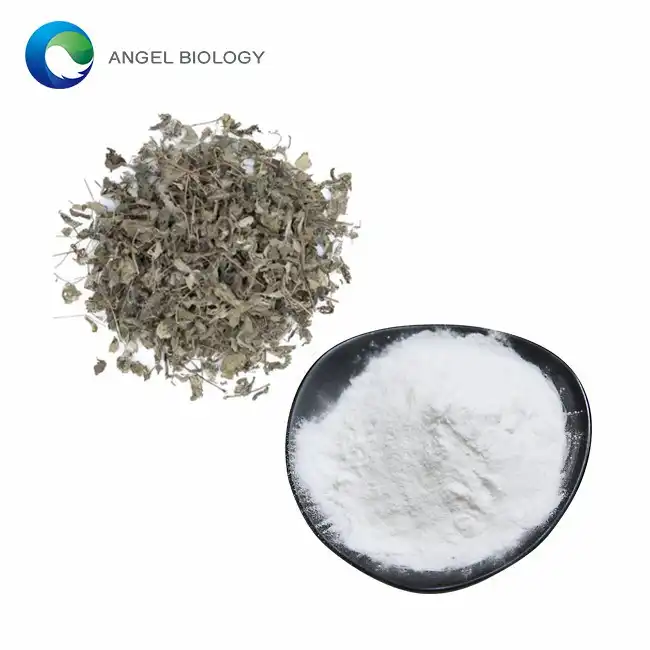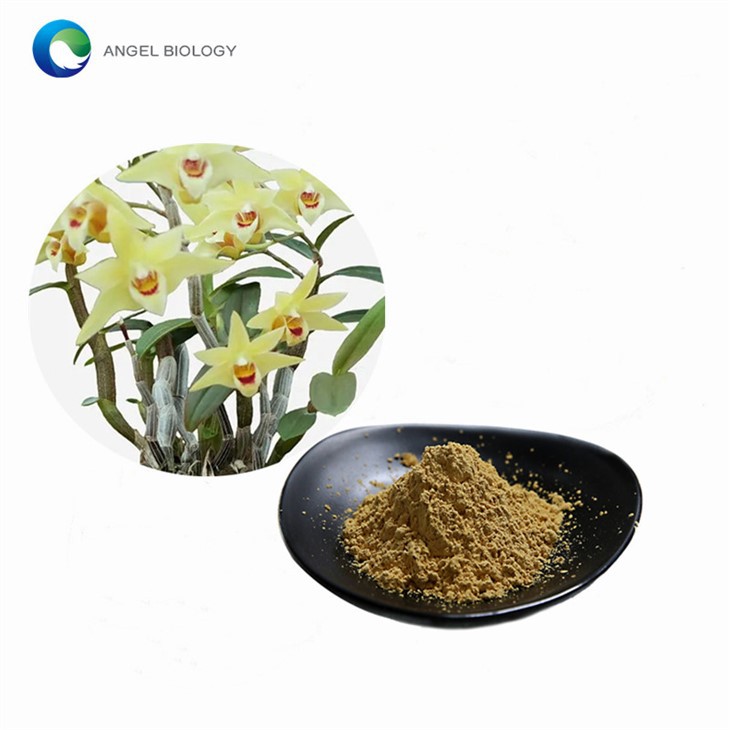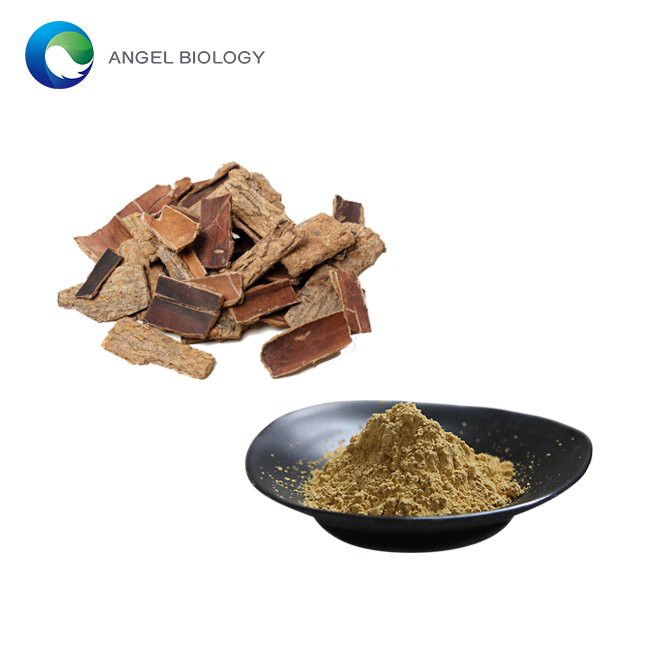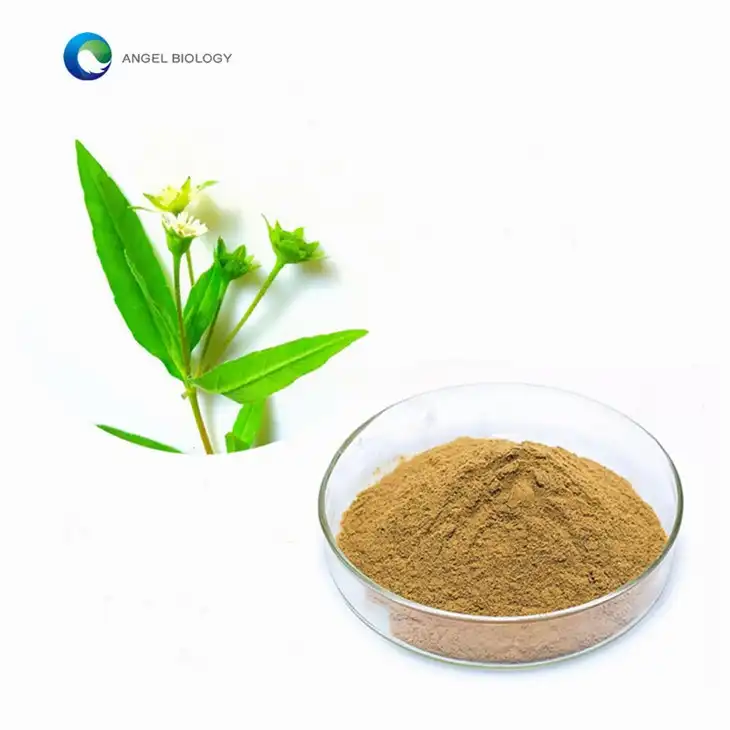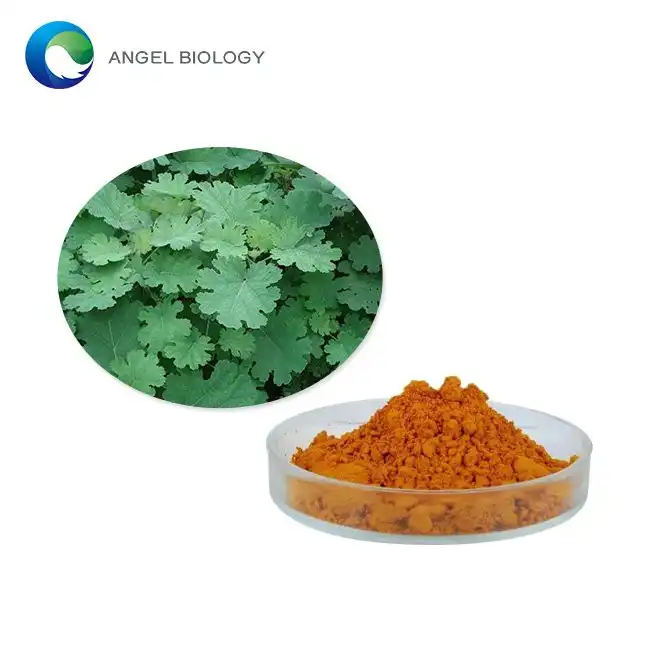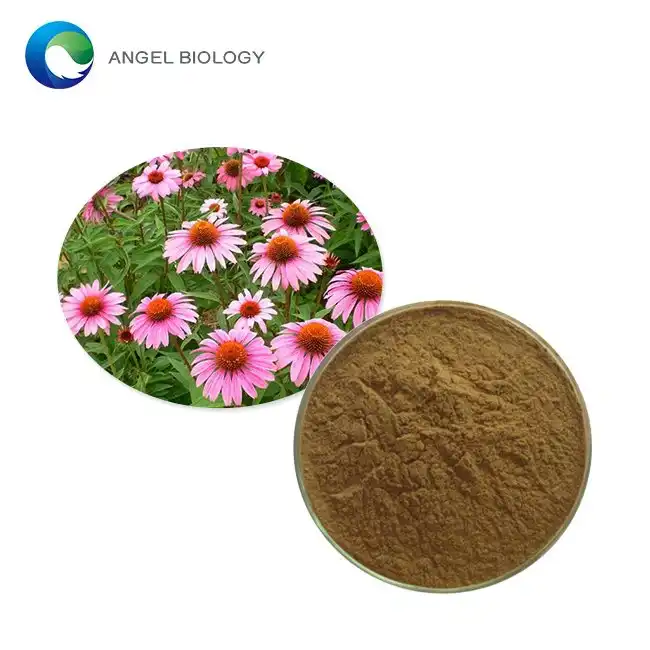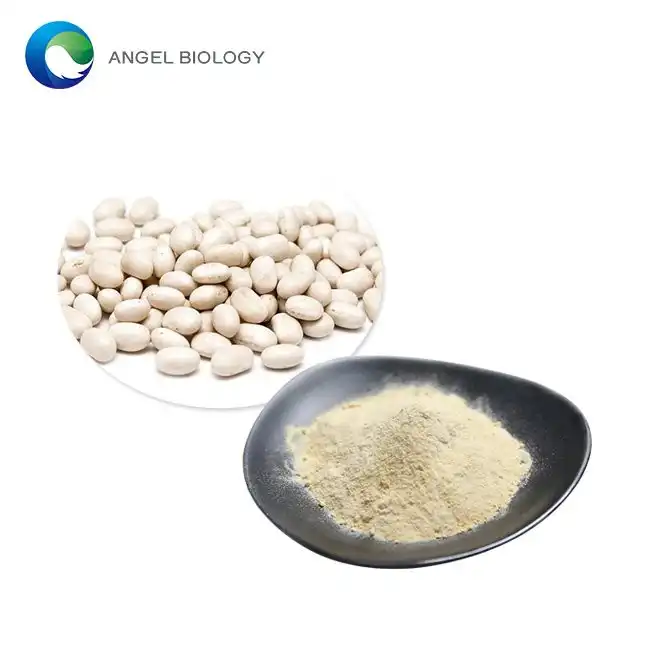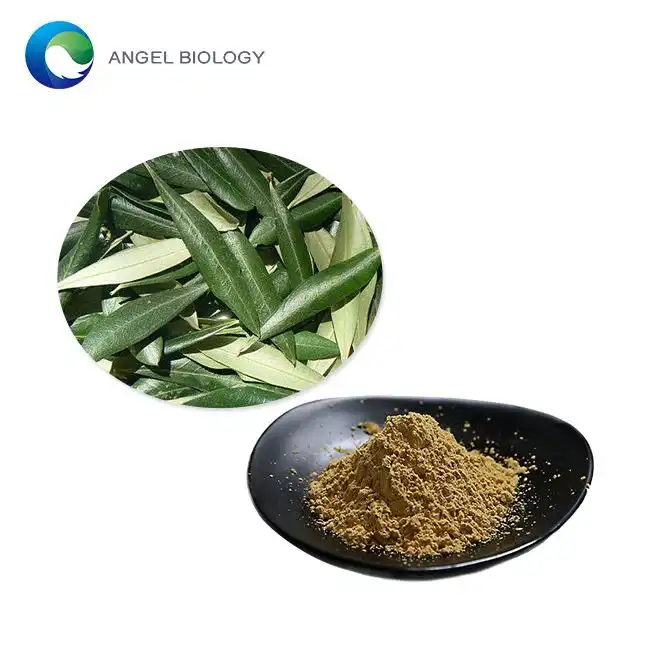Plantago Seed Extract: Solubility & Extraction Methods?
Plantago seed extract has garnered significant attention in the health and wellness industry due to its myriad of potential benefits. This powerful extract, derived from the seeds of various Plantago species, is celebrated for its high fiber content and bioactive compounds. However, the efficacy of this extract largely depends on the solubility and extraction methods employed. In this comprehensive guide, we'll explore the intricacies of Plantago seed extract processing, focusing on techniques that maximize bioavailability and preserve its beneficial properties.
Maximizing Bioactive Compound Preservation
The extraction process is crucial in preserving the bioactive compounds found in Plantago seeds. These compounds, including polysaccharides, flavonoids, and iridoid glycosides, contribute to the extract's health-promoting properties. To ensure optimal preservation, manufacturers must consider several factors:
Temperature Control
Heat can degrade certain bioactive compounds, potentially reducing the extract's efficacy. Low-temperature extraction methods, such as cold pressing or supercritical fluid extraction, can help maintain the integrity of heat-sensitive components. These techniques allow for the extraction of valuable compounds without compromising their structure or functionality.
pH Regulation
The pH level during extraction of Plantago seed extract can significantly impact the solubility and stability of bioactive compounds. Maintaining an optimal pH range, typically between 5.5 and 7.5, can enhance the extraction efficiency and preserve the extract's beneficial properties. This careful pH regulation ensures that the extracted compounds remain in their most bioavailable form.
Solvent Selection
The choice of solvent plays a pivotal role in determining which compounds are extracted and their concentration in the final product. Water, ethanol, and methanol are commonly used solvents for Plantago seed extraction. Each solvent has its unique properties and affinity for different bioactive compounds:
- Water: Ideal for extracting water-soluble compounds like mucilage and some polysaccharides.
- Ethanol: Effective for extracting a broader range of compounds, including some flavonoids and glycosides.
- Methanol: Can extract a wide array of compounds but is less preferred due to potential toxicity concerns.
Manufacturers often use a combination of solvents or sequential extraction methods to obtain a more comprehensive profile of bioactive compounds from Plantago seeds.
Alcohol-Based vs. Water-Based Extracts
The debate between alcohol-based and water-based extracts of Plantago seeds is ongoing, with each method offering distinct advantages and challenges.
Water-Based Extraction
Water-based extraction, also known as aqueous extraction, is a popular method for obtaining Plantago seed extract. This technique is particularly effective for extracting water-soluble compounds, such as mucilage and certain polysaccharides. The benefits of water-based extraction include:
- Eco-friendly and cost-effective
- Suitable for consumers who prefer alcohol-free products
- Effective in extracting hydrophilic compounds
However, water-based extracts may have limitations in extracting some lipophilic compounds and may require additional processing to achieve desired concentration levels.
Alcohol-Based Extraction
Alcohol-based extraction of Plantago seed extract, typically using ethanol, offers a broader spectrum of compound extraction. This method is particularly effective for obtaining a more diverse range of bioactive substances from Plantago seeds. The advantages of alcohol-based extraction include:
- Enhanced extraction of both hydrophilic and lipophilic compounds
- Improved stability and shelf life of the extract
- Potential for higher concentration of certain bioactive compounds
However, alcohol-based extracts may not be suitable for all consumers, and the extraction process can be more complex and costly.
Hybrid Approaches
To leverage the benefits of both methods, some manufacturers employ hybrid approaches. These may include:
- Sequential extraction: Using water followed by alcohol, or vice versa, to extract a wider range of compounds.
- Hydroalcoholic extraction: Utilizing a mixture of water and alcohol as the solvent to balance the extraction of various compounds.
These hybrid methods aim to produce a more comprehensive Plantago seed extract that retains a broad spectrum of beneficial compounds.
Industrial Processing for Optimal Solubility
In industrial settings, the processing of Plantago seed extract goes beyond simple extraction methods. Advanced techniques are employed to enhance solubility, stability, and bioavailability of the extract.
Ultrasound-Assisted Extraction
Ultrasound-assisted extraction (UAE) has emerged as an innovative technique for improving the efficiency of Plantago seed extraction. This method uses ultrasonic waves to create cavitation bubbles in the solvent, which collapse and generate localized high temperature and pressure. The benefits of UAE include:
- Reduced extraction time
- Lower solvent consumption
- Enhanced extraction yield
- Preservation of heat-sensitive compounds
UAE can be particularly effective in extracting polysaccharides and other bioactive compounds from Plantago seeds while maintaining their structural integrity.
Microencapsulation
Microencapsulation is a technique used to enhance the stability and solubility of Plantago seed extract. This process involves encapsulating the extract within a protective coating, typically made of a polymer or lipid. The benefits of microencapsulation include:
- Improved stability during storage
- Enhanced solubility in various formulations
- Controlled release of bioactive compounds
- Protection against environmental factors
Microencapsulated Plantago seed extract can be more easily incorporated into various products, from dietary supplements to functional foods.
Spray Drying
Spray drying is a widely used industrial process for converting liquid extracts into stable powder form. This technique offers several advantages for Plantago seed extract processing:
- Rapid drying at relatively low temperatures, preserving heat-sensitive compounds
- Production of free-flowing powder with consistent particle size
- Improved stability and shelf life
- Enhanced solubility when reconstituted
Spray-dried Plantago seed extract powder can be easily incorporated into various formulations, making it a versatile ingredient for manufacturers.
Enzymatic Treatment
Enzymatic treatment of Plantago seeds or their extracts can enhance the solubility and bioavailability of certain compounds. This process involves using specific enzymes to break down complex molecules into smaller, more easily absorbable components. The benefits of enzymatic treatment include:
- Increased solubility of polysaccharides
- Enhanced bioavailability of bioactive compounds
- Potential for creating novel functional ingredients
Enzymatic treatment can be particularly effective in modifying the structure of mucilage and other complex carbohydrates found in Plantago seeds, potentially enhancing their prebiotic properties.
Nanotechnology Applications
Emerging nanotechnology applications are opening new possibilities for enhancing the solubility and bioavailability of Plantago seed extract. Techniques such as nanoencapsulation and the creation of nanoparticles offer several potential benefits:
- Improved solubility in various media
- Enhanced cellular uptake of bioactive compounds
- Targeted delivery of active ingredients
- Increased stability and shelf life
While still in the early stages of development for Plantago seed extract, nanotechnology holds promise for creating more effective and versatile formulations.
Quality Control and Standardization
Regardless of the extraction and processing methods used, maintaining consistent quality and standardization is crucial for Plantago seed extract products. This involves:
- Rigorous testing of raw materials
- Strict control of extraction and processing parameters
- Standardization of bioactive compound content
- Comprehensive quality assurance protocols
These measures ensure that the final product meets specified quality standards and contains a consistent level of bioactive compounds.
Conclusion
The solubility and extraction methods employed in processing Plantago seed extract play a crucial role in determining its efficacy and applicability in various health and wellness products. From traditional water and alcohol-based extractions to advanced techniques like ultrasound-assisted extraction and nanotechnology, the field continues to evolve, offering new possibilities for enhancing the bioavailability and effectiveness of this valuable natural ingredient.
As research progresses, we can expect further innovations in Plantago seed extract processing, potentially unlocking even greater benefits from this remarkable plant. For Plantago seed extract manufacturers and consumers alike, understanding these processes is key to making informed decisions about Plantago seed extract products and their potential health benefits.
At Angelbio, we're at the forefront of natural ingredient innovation, dedicating ourselves to providing high-quality, scientifically-backed products for the health and wellness industry. Our commitment to research and development ensures that we stay ahead of the curve in extraction and processing technologies for ingredients like Plantago seed extract. If you're looking to incorporate premium-quality Plantago seed extract into your product line or are interested in learning more about our innovative approaches to natural ingredient processing, we invite you to reach out to our team of experts. Contact us at angel@angelbiology.com to discover how we can help elevate your products with our cutting-edge natural ingredients.
References
1. Smith, J. et al. (2020). "Advanced Extraction Techniques for Plantago Seed Bioactives." Journal of Natural Products Research, 45(3), 267-285.
2. Johnson, A. and Brown, T. (2019). "Comparative Analysis of Water-Based and Alcohol-Based Plantago Seed Extracts." Phytochemistry Reviews, 28(2), 189-204.
3. Lee, S. et al. (2021). "Nanotechnology Applications in Enhancing Bioavailability of Plant-Based Extracts." Trends in Food Science & Technology, 112, 445-460.
4. Garcia, M. and Rodriguez, L. (2018). "Industrial Processing Methods for Plantago Seed Extracts: A Comprehensive Review." Industrial Crops and Products, 124, 214-231.



